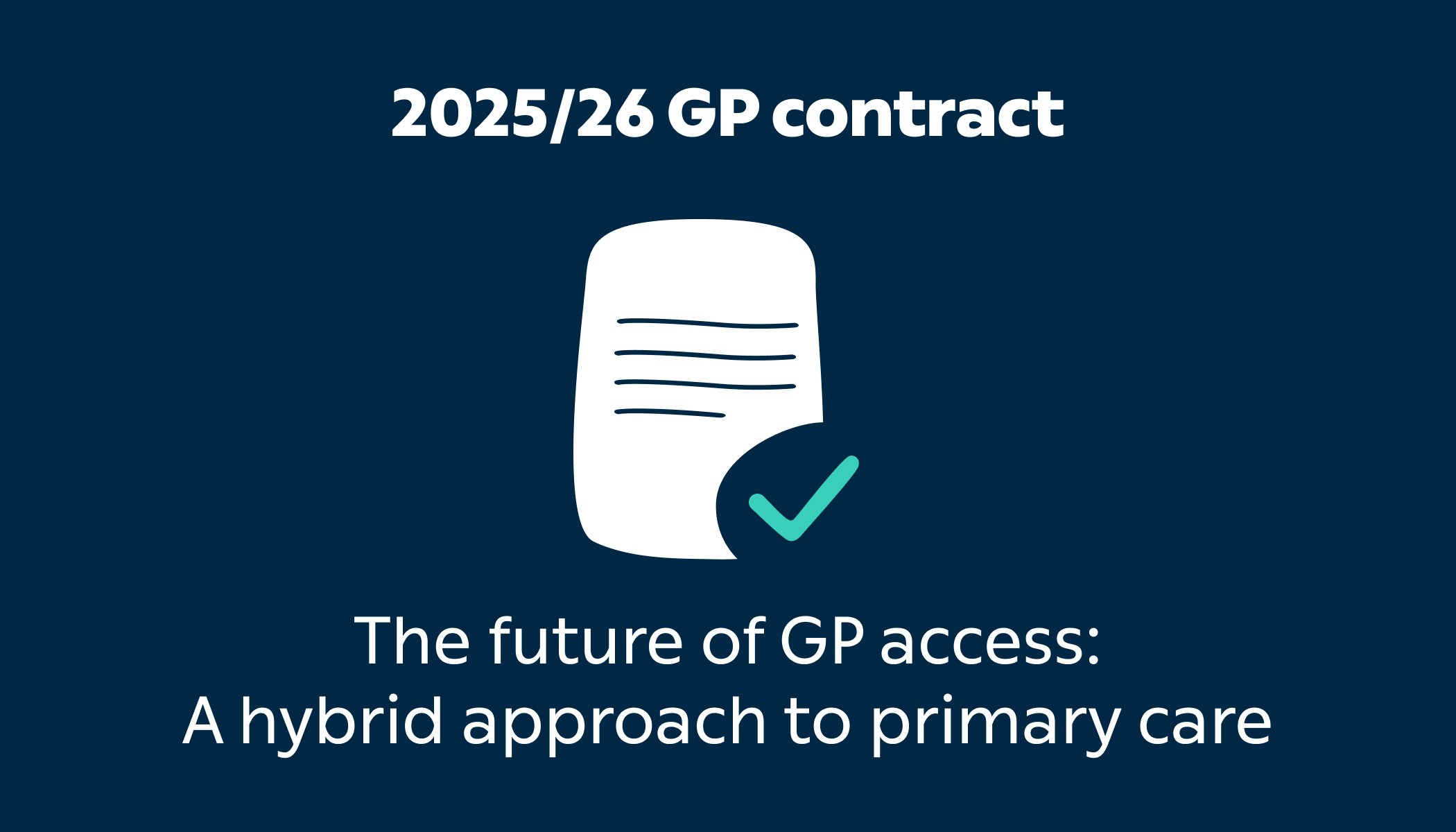Following publication of the GP contract, the delivery plan to recover access to primary care details a number of initiatives to help ‘tackle the 8am rush'.
On one hand, its focus on practical measures and open recognition of the current supply and demand mismatch in primary care has been welcomed. Yet, at the same time, others have highlighted the current limitations placed on the system to fully realise its vision due to these very issues.
"Whilst all these initiatives are positive steps, none are the silver bullet that we desperately need to address the intense workload and workforce pressures GPs and their teams are working under.” - RCGP
While it’s fair to say that reception to the plan thus far has been mixed, it outlines a number of key workstreams for practices, PCNs and ICBs in the coming years. Here, we unpack all the key takeaways, analyse their implications and outline what’s next.
Modernising access routes
One of the plan’s central pillars is to implement ‘Modern General Practice Access.’ The three core components of which include digital telephony, simpler online requests and faster navigation, assessment and response.
It is stated that “effective care navigation could direct over 15% of patients to teams that could better help them.” To that end, the plan highlights use cases of digital and online contact tools supporting care navigation in practices and PCNs. These detail effective use of rostering, queueing, automatic prompts to route calls to appropriate staff and the utilisation of data to inform service delivery.
The NHS plans to retarget over £240 million into technology to help practices and PCNs implement similar models, as well as training in care navigation and support for practices currently utilising analogue lines to switch to digital telephone systems.
Empowering patients
There will also be investment in tools to support people to stay healthy and manage their care “without needing to see their GP.”
The NHS App will have a significant role to play. The aim will be to expand key functionality to patients in over 90% of practices. This includes the ability for patients to view and access their records, receive messages from their practice, book appointments and request repeat prescriptions.
A particular use case highlighted is that of a practice who, prior to roll out of repeat prescription functionality in the NHS App in their locality, received a high volume of calls for this specific task. Now, around 650 to 700 repeat prescriptions a week are made through the NHS App in their area.
Expanding self-referral and pharmacy
There are also plans to increase the ability for patients to self-refer into community services for issues such as musculoskeletal conditions, audiology and weight management, to name just a few key areas. ICBs will be required to expand self-referral pathways in line with 23/24 Operational Planning Guidance by September of this year.
Additionally, the launch of Pharmacy First will see community pharmacies able to supply prescription-only medicines for common conditions, and pharmacy oral contraception and blood pressure services will also be expanded. The plan states that these pharmacy-based initiatives, once scaled, could potentially save up to 10 million appointments a year.
Increasing capacity
Proposals aim to build additional capacity into the system with larger multidisciplinary teams, recruitment of new doctors and retention and return of experienced GPs.
ARRS staff will be funded after 23/24 and an additional £385 million in funding will be made available. The plan notes a particular use case of how one health centre has utilised care navigators and protocols to match patient requests to an appropriate member of the team. This is said to have released GP time with the practice able to increase duration of appointments from 10 to 15 minutes.
To support recruitment of new GPs, £35 million of SDF funding will also be available for general practice fellowships in 2023/24. In addition, GP speciality training will be expanded and pension reforms implemented to support retention of doctors.
Reducing bureaucracy
An estimated 30% of GP time is spent on non-patient facing tasks at present. Thus, the plan will seek to foster ‘a higher trust lower bureaucracy approach’. This includes a reduction on reporting on targets and streamlining to the Investment and Impact Fund (IIF) from 36 to five indicators, as well as future changes to QOF.
Alongside this, initiatives will look to alleviate administrative burden. Two key aims are to reduce the amount of time practices spend liaising with hospitals and incoming requests to GPs to verify medical evidence. ICBs will be also required to report on progress made to improve the interface between primary and secondary care.
What’s next?
ICBs are required to put together a system-level access improvement plan for submission to public boards by October/November of this year. Plans should detail the actions practices and PCNs have committed to and be aligned with Fuller Stocktake. There should be a focus on digital telephony and how it can support a system-wide approach to integrated urgent care and neighbourhood teams. While plans should also prioritise supporting those areas with lowest patient satisfaction scores.
Analysis
The plan’s focus on self-referral, care navigation, investment in telephony and reduced bureaucracy have been greeted positively in some quarters of the primary care community. However, many believe much of the plan’s success will also depend on external factors.
“The factors that will decide the plan’s success lie, for the most part, outside of primary care’s control. Whether this be ICBs’ own access improvement plans or their measures to cut bureaucracy, the GP pipeline or simply the time it will take for patients to adapt to the modern way of accessing general practice.” - NHS Confederation (2023), Delivery plan for recovering primary care access: what you need to know
And while the move to expand the role of community pharmacy has also largely been seen as a positive step, others have also highlighted current capacity issues in this area of the health system too. With many local chemists closing, success will depend on the level of investment and support provided in real terms in the coming years.
“Enabling pharmacists to provide more care to patients and take some pressure off general practice is long overdue. However, it will need to be implemented carefully. The number of community pharmacies has actually been shrinking as their workload has risen.” - Nuffield Trust, Response to GP Access Plan
The Livi take
The plan’s advocacy for how digital technologies can be used to bridge current capacity gaps is something we have seen a positive impact first-hand working with our ICB, PCN and GP practice partners.
Case studies shared highlight innovative models already in place in practices and PCNs and point to some practical applications of how tools can be implemented to optimise care navigation.
This can have a dual benefit in helping patients access the right care and easing pressure on clinical teams. Both will be essential to supporting the future sustainability of the healthcare system.
How we can help
Livi has a number of tools to support modern general practice access:
Our Livi Practice and Population services provide digital clinical capacity by telephone and video. We deliver support at an individual surgery and system level, as well as administrative support
Livi Practice Websites improve care navigation, signpost to services and help patients complete key tasks online such as booking appointments
Mjog offers surgeries a tried and tested solution for patient engagement. From appointment reminders to remote monitoring questionnaires, we enable practices to engage patients at scale and reduce DNAs
To discuss your needs, talk to our team on partnerships-uk@livi.co.uk or book a meeting.
Further reading
RCGP. GP access recovery plan not the silver bullet that we desperately need - says College Chair. Available online: https://www.rcgp.org.uk/News/Recovery-plan. Accessed May 2023.
NHS Confederation. Delivery plan for recovering primary care access: what you need to know. Available online: https://www.nhsconfed.org/publications/delivery-plan-recovering-primary-care-access. Accessed May 2023.
Nuffield Trust response to GP Access Recovery Plan. Available online: https://www.nuffieldtrust.org.uk/news-item/nuffield-trust-response-to-gp-access-recovery-plan. Accessed May 2023.


